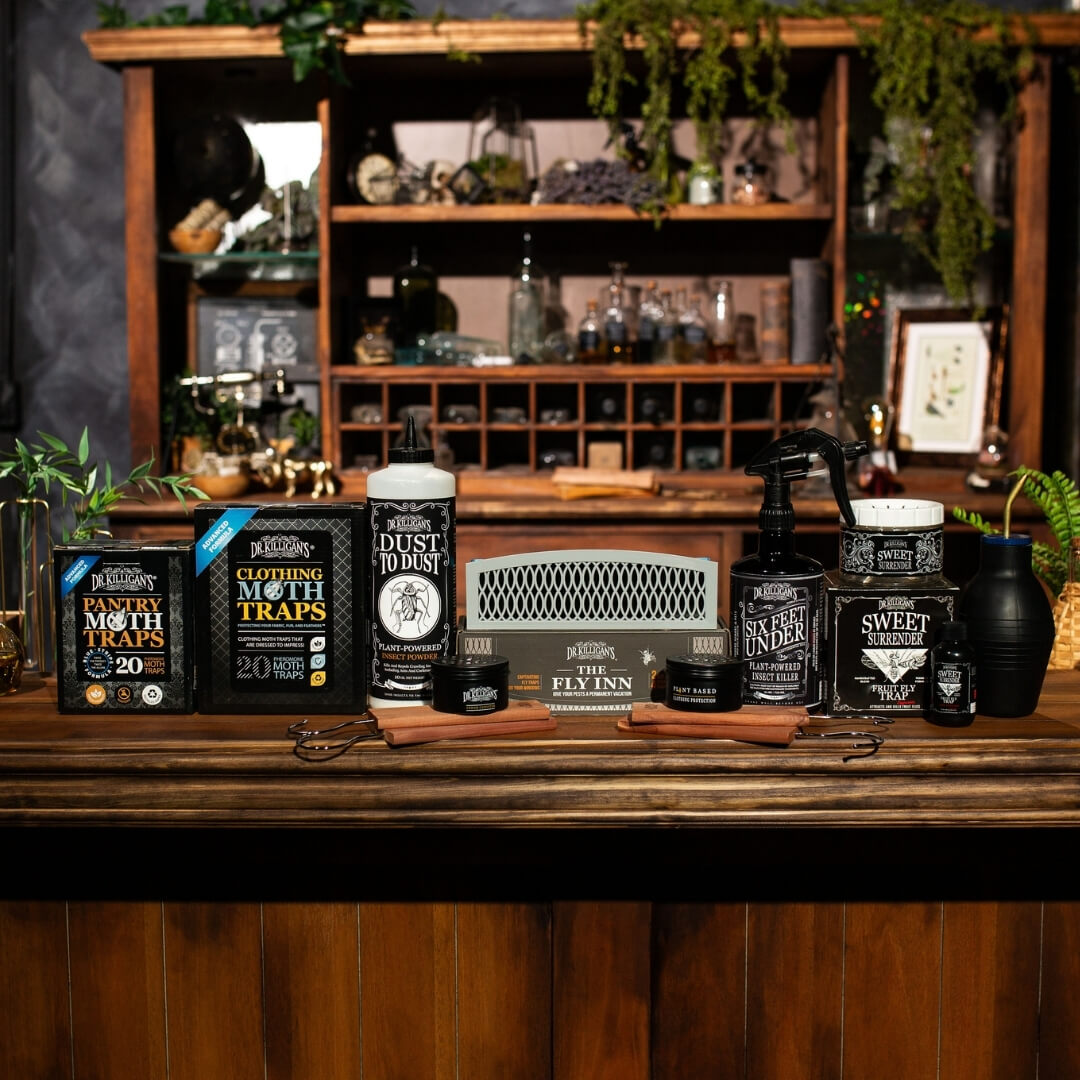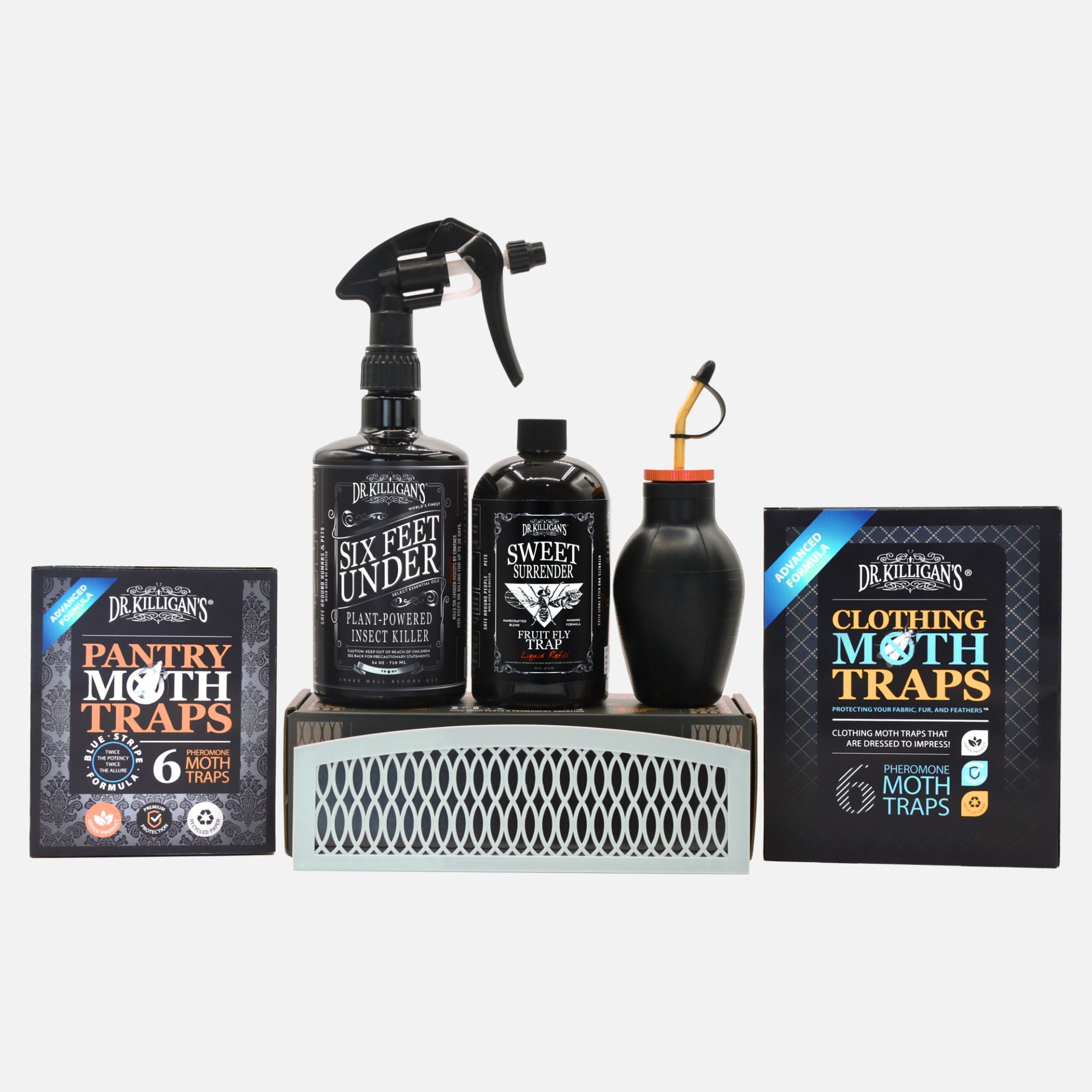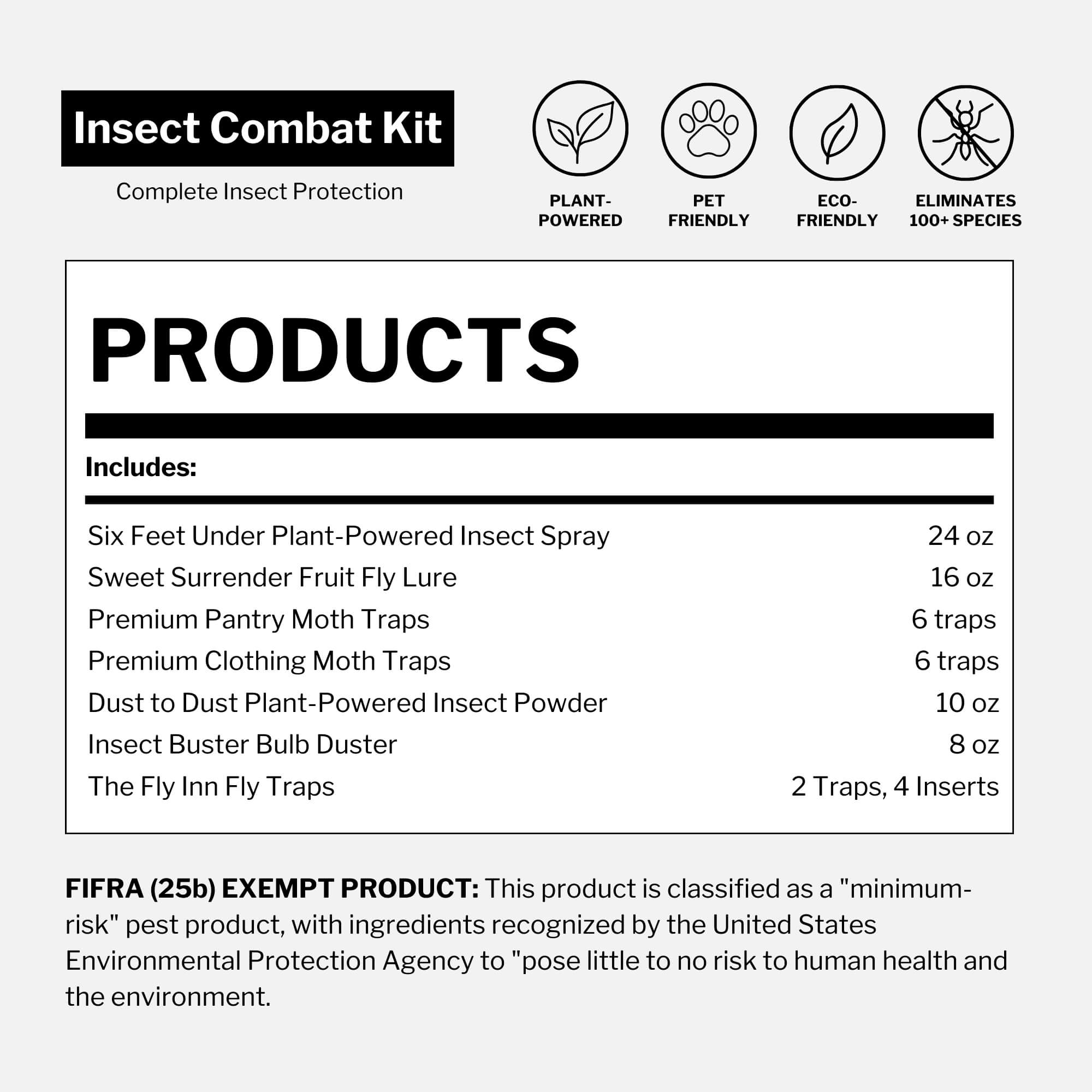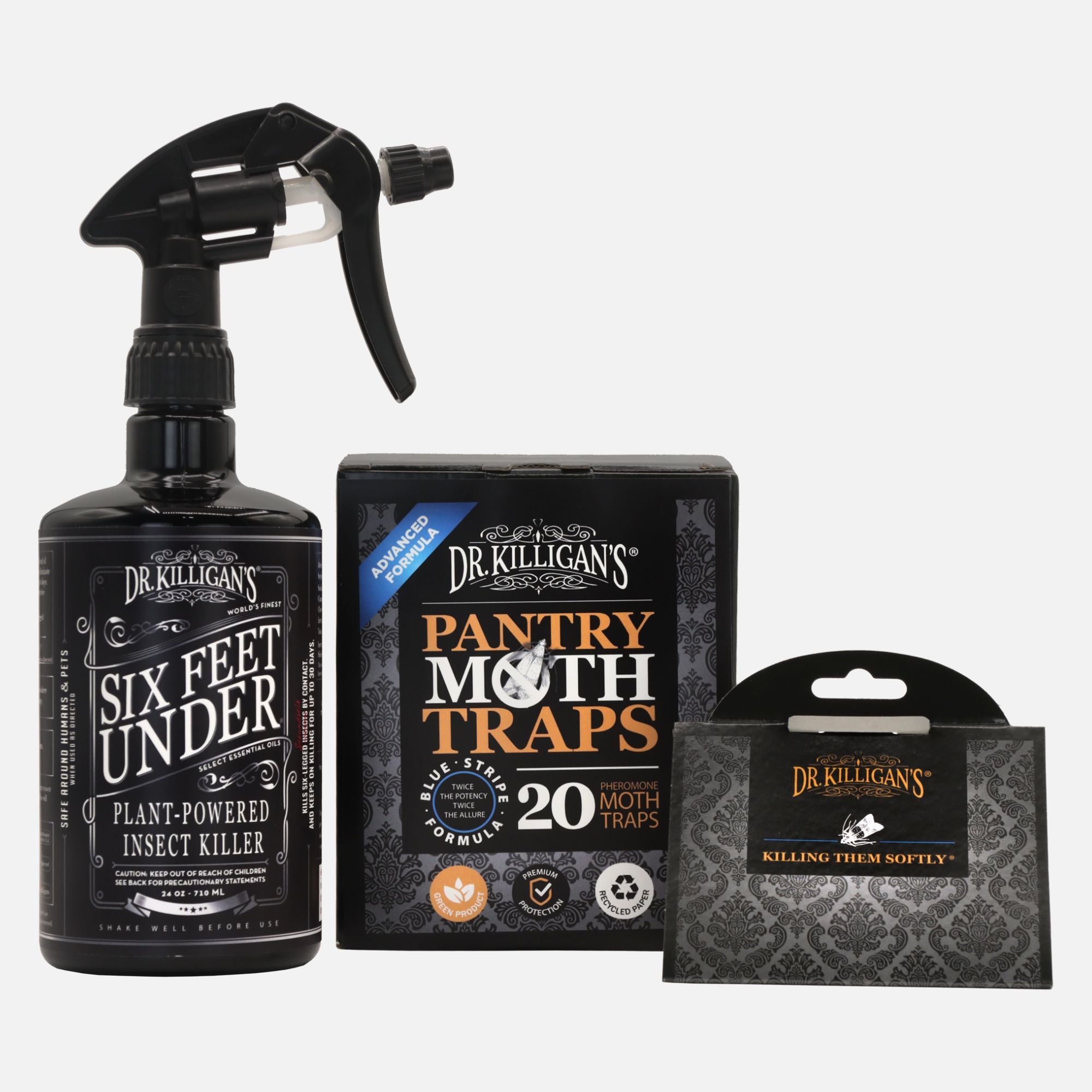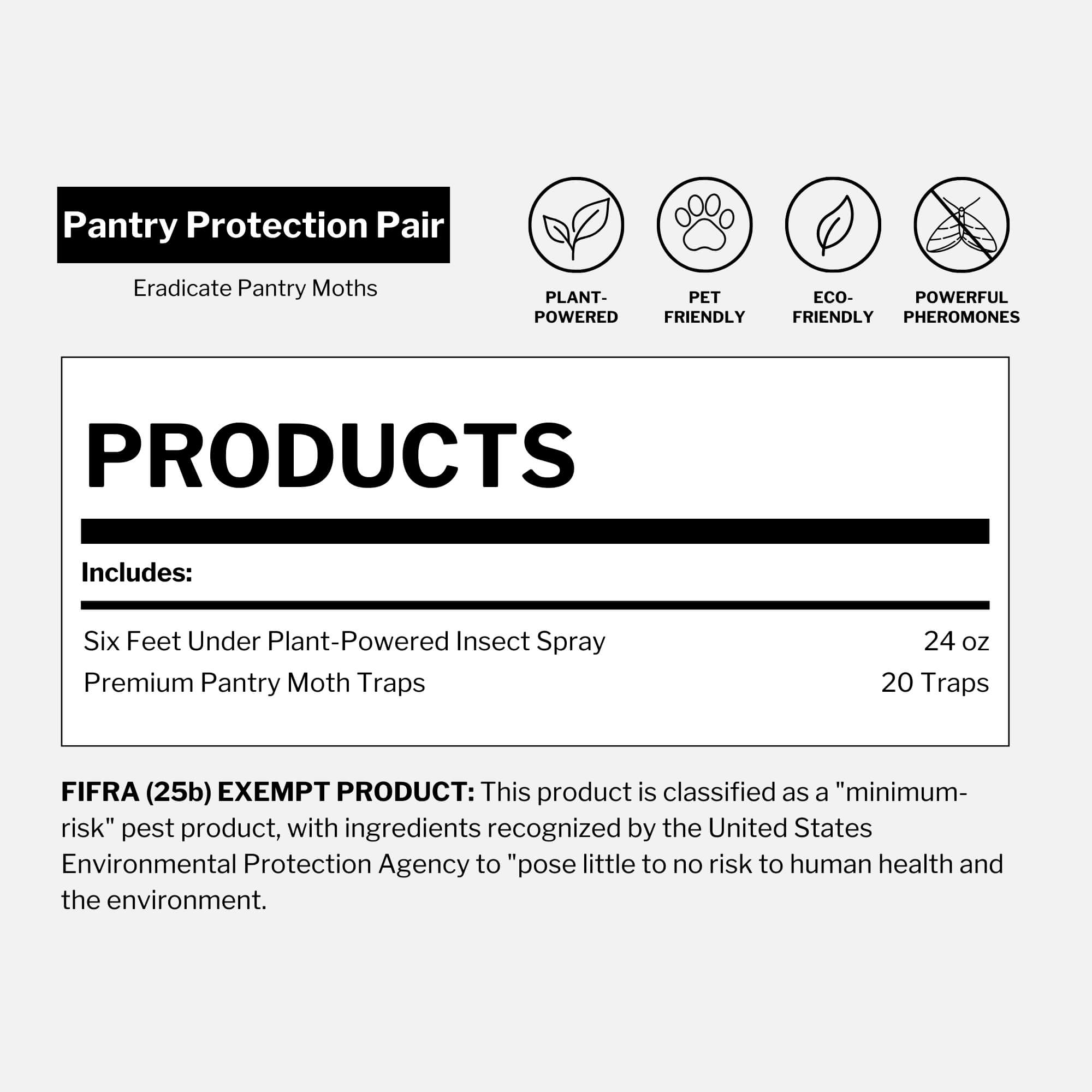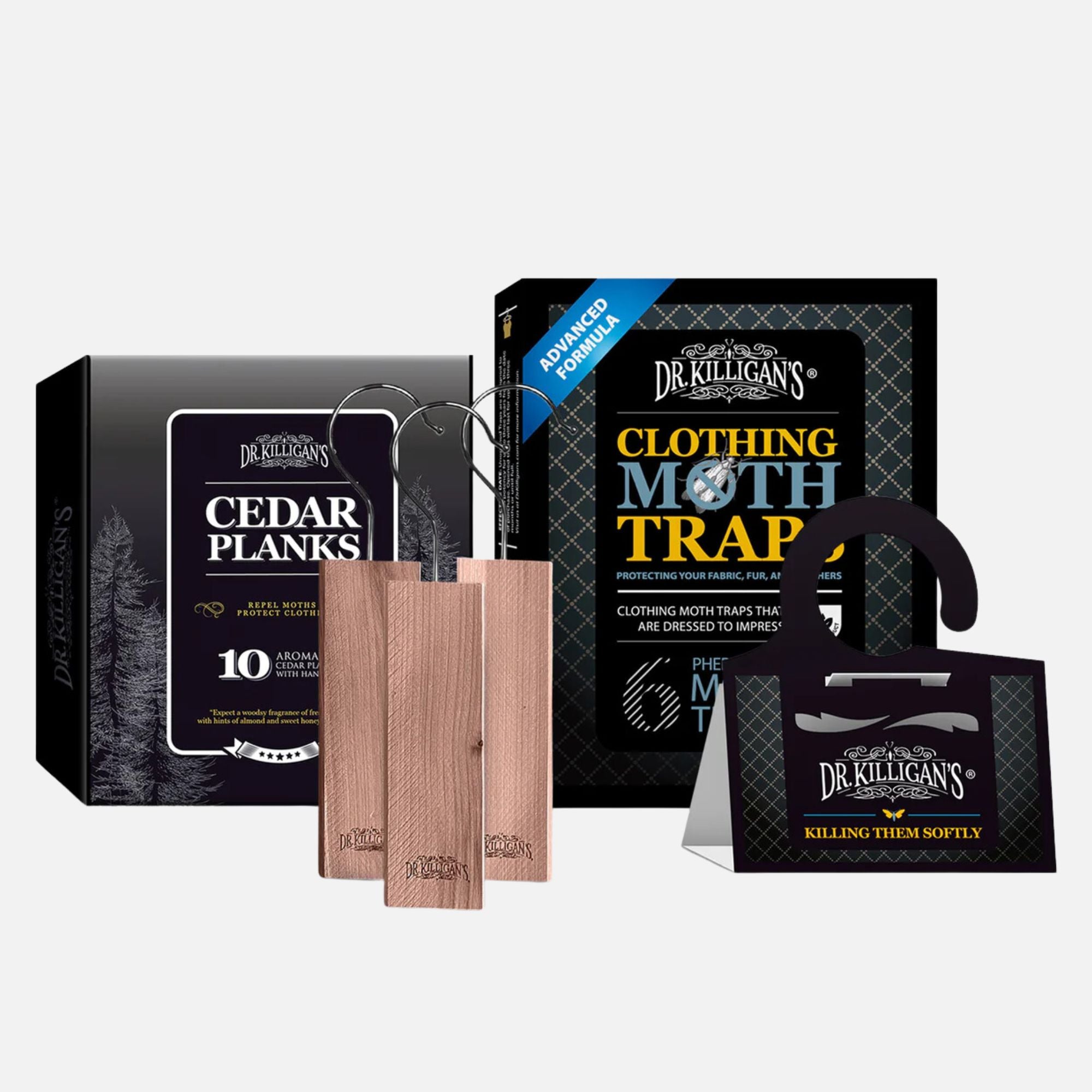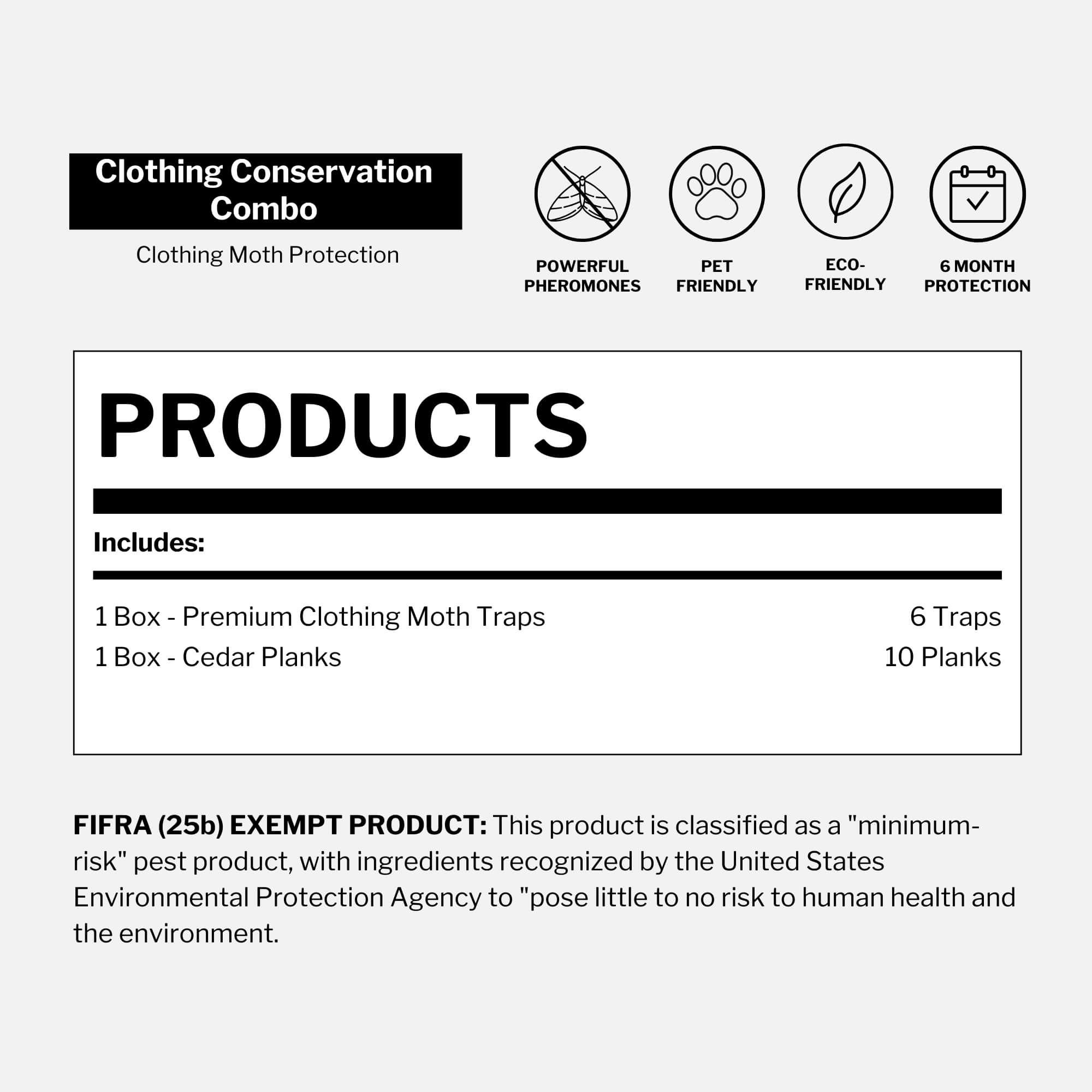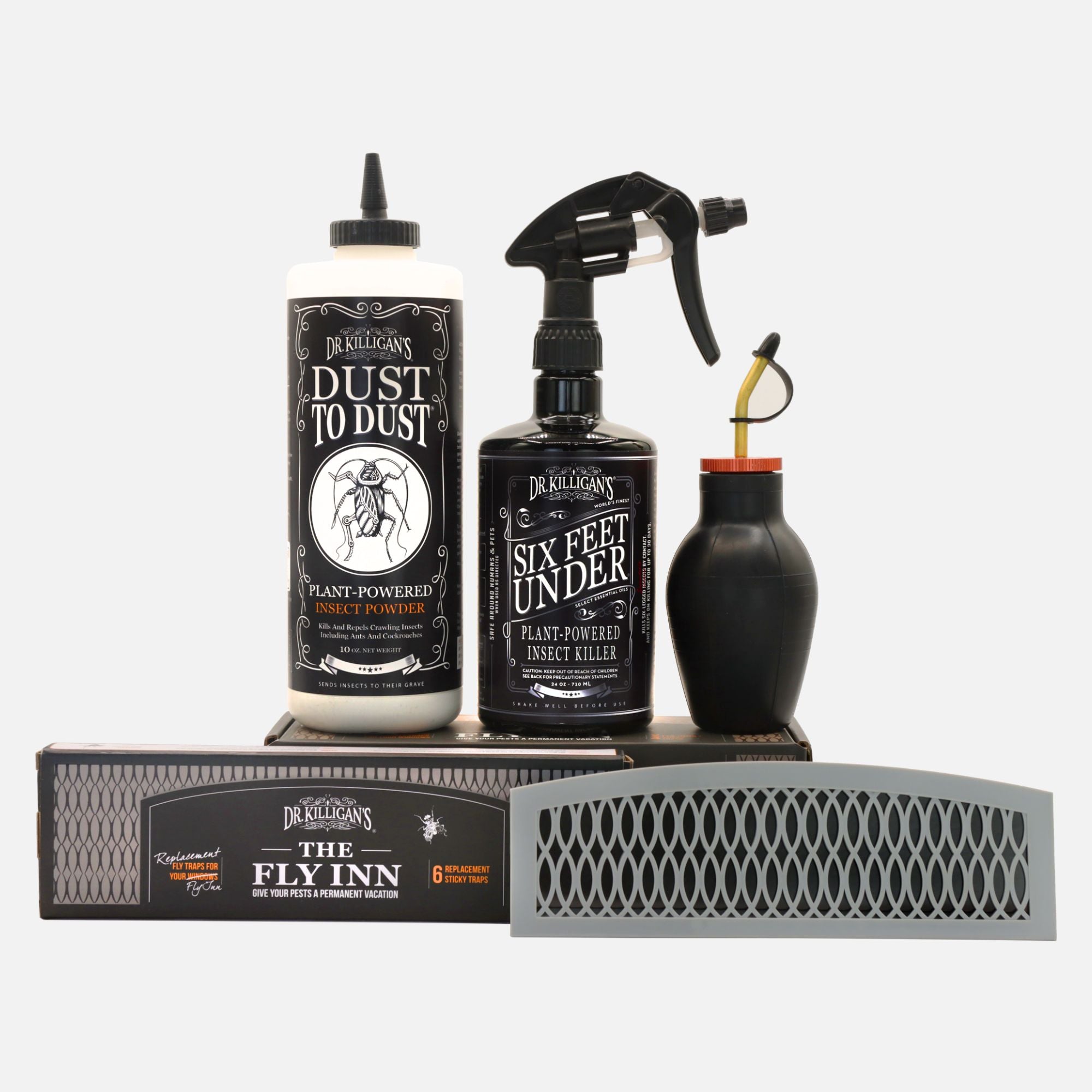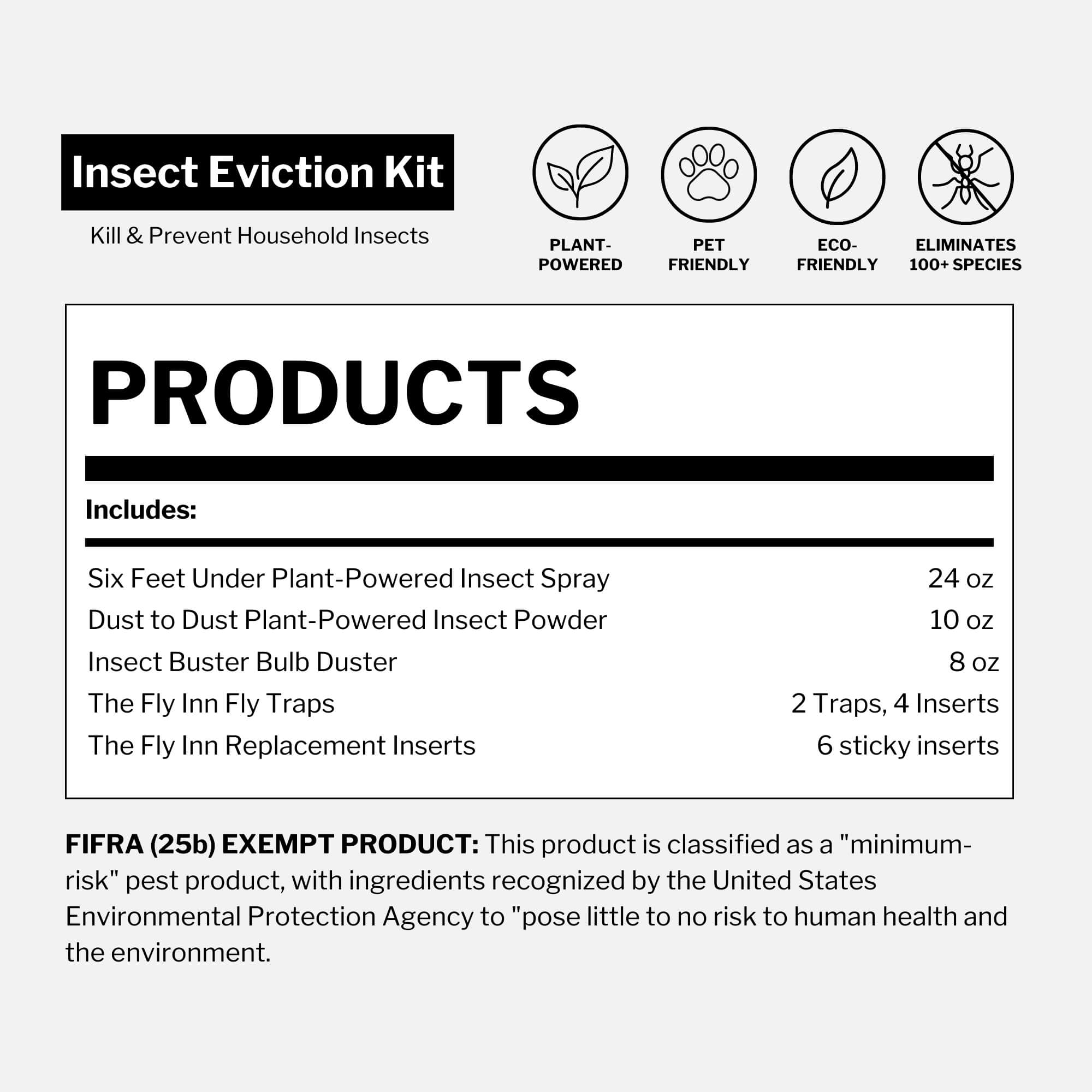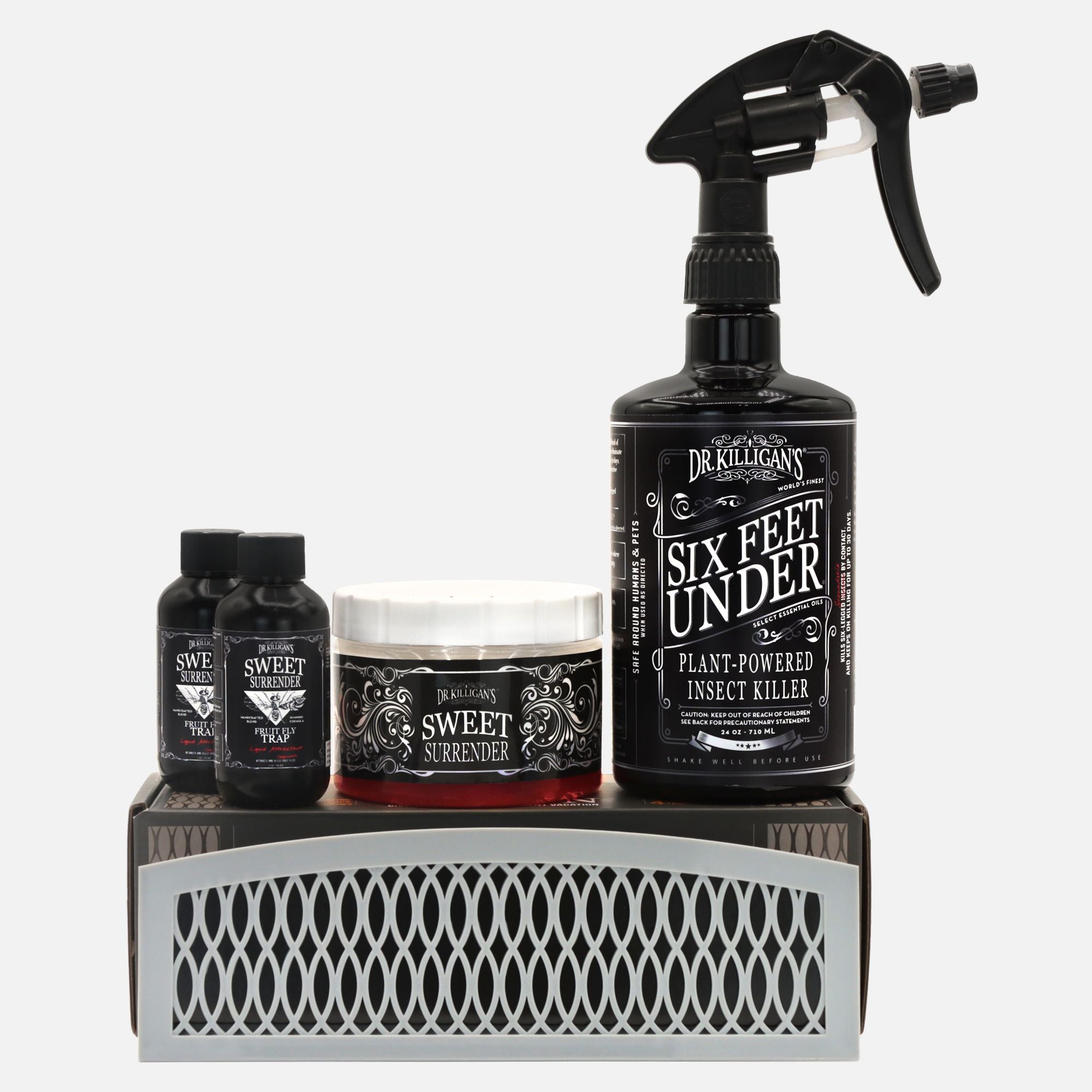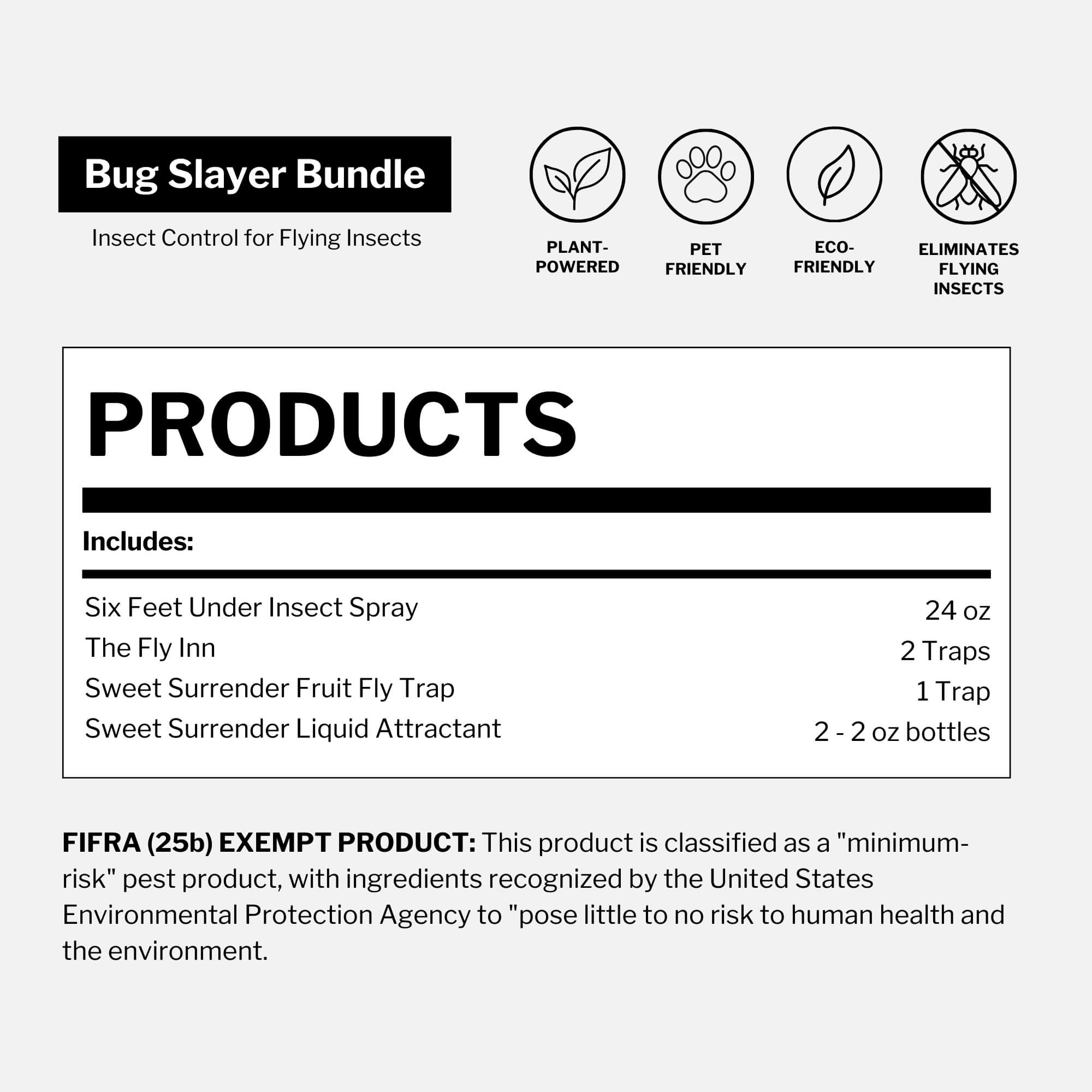Updated on May 3rd, 2025
Pantry moth traps: Stop infestations fast and protect your food
In this guide, I’ll show you how to choose the best pantry moth trap and use it to stop infestations fast—safely and effectively.
Pantry moth traps are your secret weapon against unwelcome winged pantry guests.
Why you need pantry moth traps: What makes these pests so destructive
Before we charge headlong into battle, let us first assess the villainous forces plaguing our pantries.
The dreaded pantry moth may seem a mere nuisance, but its larvae are warriors of unparalleled grubbiness. These wriggling off-white hordes feast on your precious foodstuffs, leaving behind silky webbing and trails of frass—a grim tapestry of their gastronomic conquests. Grains, nuts, dried fruits, spices—naught is safe from their insatiable appetites. This is no playground—it’s a battlefield. And your beloved pantry is the prize.
Yet where these moth marauders tread, I follow. My Premium Pantry Moth Traps strike where the moths strike—your shelves, your stores, your strongholds. Together, let's reclaim your pantry and transform it from a war zone into a haven of culinary delights.
How pantry moth traps work: Luring moths with pheromones
I recommend pheromone traps as the most effective solution for pantry moths. These traps mimic the alluring scents that female moths release to attract mates. Unsuspecting males fly in, drawn by this irresistible chemical signal. By targeting the males, the mating cycle is disrupted and the infestation is stopped at its source.

Pheromones are species-specific and remarkably potent. Under the right conditions, the scent of a female moth can travel up to 1,000 meters in what scientists call a “scent cone”—a plume of pheromones carried downwind that male moths can detect with astounding precision using their ultra-sensitive antennae. My traps tap into this natural communication method. By replicating the chemical signals female moths emit, I’ve created a decoy too tempting to resist.
Our pantry moth traps—powered by my precision-engineered Advanced Blue Stripe Formula—use a double-potent moth-pheromone attractant that fuses science and nature to lure Indian meal moths and other food-invading pests. This powerful lure is paired with an ultra-sticky adhesive, engineered to trap and hold moths for weeks.
Note: Our pantry traps are designed to attract Indian meal moths, almond moths, raisin moths and Mediterranean flour moths.
Here's what you can expect:
- Effective for three months: Once unsealed, each trap stays active and attractive for a full three months.
- Unopened power: Stored in foil pouches, they retain full potency for up to three years from the date of manufacture.
- Safe and eco-friendly: Free from harmful chemicals, these traps are safe to use around food, children and pets. Sleek and understated, they blend into your pantry while working behind the scenes to stop moths in their tracks.
- Scientifically engineered: The adhesive was purposefully designed to deliver a strong, lasting hold—even in humid environments.
Customer satisfaction speaks louder than any label I could place on the box. Time and again, I hear from folks who’ve faced full-blown infestations—and found relief.
“This works!! Just buy it! We had pantry moths everywhere and these took them all out within a week!”—Sara
Stories like Sara’s remind me why I built these traps: to offer an effective solution that truly works.
What pantry moths and their eggs look like
Wondering what pantry moths look like—or what signs to search for? You're not alone. Many of our readers first discover an infestation when they search for pantry moth eggs pictures or pictures of pantry bugs online. Here's what to look for in your kitchen.

Adult pantry moths are small, brownish-gray insects with elongated wings and subtle zigzagging patterns. You’ll often spot them fluttering near ceiling corners or clinging to cabinet walls. But don’t be fooled—they’re only the visible tip of the infestation.
The real threat lies in their eggs and larvae. Pantry moth eggs are barely visible to the naked eye—tiny white or gray specks often laid in tight clusters. Common hiding spots include food packaging seams, pantry crevices and along the edges of shelves. From these near-invisible origins emerge cream-colored, wriggling larvae that feed on your dry goods and contaminate everything in their path.
You might open a bag of flour or cereal and find clumped grains, silk webbing or little black specks (moth frass). These are signs that pantry bugs—most often Indian meal moths—have already made themselves at home.
Now, let’s talk strategy—because even the best traps need smart deployment.
How to use pantry moth traps for best results
Let's turn to your pantry battlefield. Place your traps strategically, focusing on areas with high moth activity or where you've identified past infestations. Think shelves and corners, near open containers of susceptible foods and even doorways to intercept moths before they enter. And don’t overlook your garage—pantry moths are drawn there too, especially if it's attached to your home.

Here are some additional tips for successful deployment:
- Experiment with location: Airflow can affect lure effectiveness, so don't hesitate to try different spots in your pantry or kitchen.
- Don't get discouraged: Even if you don't see immediate results, be patient. It takes time to disrupt the entire lifecycle of an infestation.
- Combine with prevention: Traps are your front-line defense, but remember, prevention is key. Store food in airtight containers, regularly declutter and clean your pantry and use natural deterrents like bay leaves or cedarwood.
Troubleshooting traps and beyond: Reclaiming your pantry for good
"My traps are out, but they don't seem to catch many moths!" Here's what to do:
- Check if the release paper has been removed from the trap to expose the glue.
- Consider changing the location of your traps.
- If your traps get inundated with moths before three months, switch them out—it's a good sign your strategy is working.
"My traps have lots of moths, but I still see them flying around!" Don't panic. Traps target males to disrupt breeding, but it takes time for the infestation to die out completely. Here's what you can do:
- Examine your pantry for the real culprits—female moths and larvae. Look for webbing and tiny black dots (moth poo) in cereal boxes, bags and corners. Discard infested food immediately.
- Give your pantry a thorough vinegar and water scrub to eliminate any moth hiding places and remnants.
- Follow up with a spritz of Six Feet Under Plant-Powered Insect Spray, which will kill any remaining eggs and larvae. Set the nozzle to mist and spray pantry moths in flight. This kill-on-contact formula takes them down fast.
- Keep using traps even after visible moths disappear. It takes time for the entire lifecycle to be disrupted. Maintain your trapping regime and remain vigilant for at least three months even after you no longer see moths fluttering about. Consider this a period of mop-up, ensuring any stragglers or newly hatched larvae meet their sticky demise.

With these concluding steps, you've banished the immediate moth menace and sent a chilling message to any future moth armies contemplating an invasion of your delicious domain.
But remember, victory doesn't spell complacency. Eternal vigilance is the price of a moth-free pantry. Keep a stash of Dr. Killigan’s pantry moth traps on hand—your trusted solution for pantry shelves and cupboards. Whether you're preventing future infestations or battling a current one, these pantry moth traps provide lasting peace of mind.
And should you ever find yourself facing a resurgence of moth activity, I am always here to guide you. Simply visit DrKilligans.com or reach out to our team of pest control experts. We'll equip you with the knowledge and tools necessary to banish the bugs and reclaim your pantry for good.
Now, go forth and feast. Enjoy the peace of mind that comes with a moth-free pantry and let your culinary creativity flourish. Bon appétit and happy pest-free living.




